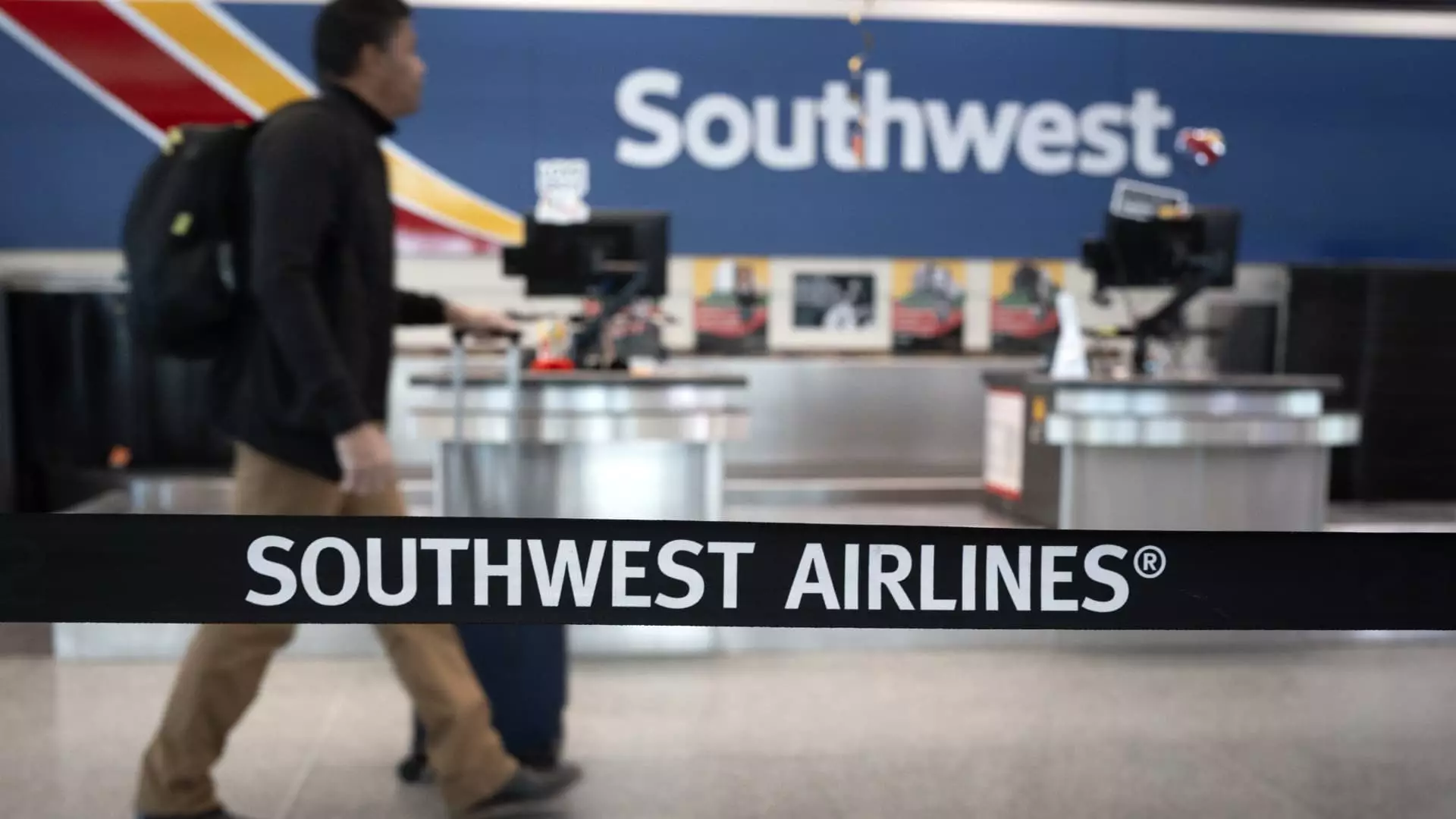In an unprecedented shift for a brand that has long epitomized customer satisfaction, Southwest Airlines is set to break a 50-year tradition of offering two free checked bags. Starting Wednesday, travelers will face fees for checked luggage—a development that has sparked a wave of outrage among loyal customers. The once-sacrosanct policy not only made Southwest distinct in an often inflexible industry but also created a sense of community among passengers who appreciated the airline’s commitment to more transparent and customer-friendly pricing models. However, with U.S. airlines collectively raking in nearly $7.3 billion from baggage fees last year, the financial pressures on Southwest executives have led them to reconsider such advantages.
It’s telling that the decision to impose fees came after pressure from shareholders, particularly the activist investment firm Elliott Management, which gained multiple board seats to influence the airline’s direction. This transition in Southwest’s strategy offers a glimpse into the broader trends affecting the airline industry, where profitability now often seems to outweigh customer loyalty.
What This Means for Travelers
So what does this mean for Southwest’s customer base? Starting Wednesday, the “two bags fly free” policy will apply only to tickets purchased before the cut-off date, leaving new customers with the stark realization that what set Southwest apart from other carriers has now changed considerably. Although exact fees haven’t been disclosed, travelers can anticipate charges comparable to most of its major competitors—typically around $35 to $40 for the first checked bag domestically.
Moreover, Southwest’s introduction of Basic Economy fares complicates things even further. With this new tier, passengers will find themselves subject to a myriad of restrictions, including a lack of ticket change flexibility and diminished boarding priority. This paradigm shift not only erodes the value proposition that many passengers relied on but also adds to the concerns surrounding customer experience in air travel.
Loyalty Reimagined
Amidst all the turbulence, there are rays of light for devoted customers. Southwest still honors its loyalty program, allowing top-tier Rapid Rewards members—along with specific fare types like the Business Select ticket—to enjoy the benefits of free checked baggage. Furthermore, those who hold a co-branded Southwest credit card will also be exempt from bag fees, at least for their first checked bag. Nonetheless, the clear distinction between loyal customers and new ones serves as a reflection of an airline trying hard to satisfy its investment backers while managing to keep some semblance of its longstanding dedication to frequent flyers.
What’s particularly disconcerting, however, is how these changes might shape customer relationships moving forward. By limiting benefits and introducing fees for services once deemed a norm, Southwest risks alienating a segment of its loyal followers. This paradigm might push budget-conscious travelers to reconsider their allegiance, as they see value evaporating with every new policy change.
Impact on the Airline’s Future
As Southwest Airlines embarks on this new chapter, it’s concurrently revealing plans to phase out its open-seating policy, a cornerstone of its brand identity for decades. This alteration isn’t just a logistical shift; it represents a fundamental change in Southwest’s philosophy regarding customer choice and comfort. An airline traditionally characterized by its informal service and quirky charm is, in some ways, becoming more like the rest of the airline industry it once stood against.
The impending introduction of reserved seating and extra legroom options indicates that Southwest is not just playing catch-up but is actively trying to modify its image to attract a new demographic that may prioritize different travel experiences. Despite the industry’s shift toward profit-driven strategies, there remains a significant question: will customers ultimately value seat assignments more than they cherished their freedom of choice?
Customer Sentiment and Future Projections
It’s worth noting that initial customer responses have not resonated as strongly as one would expect. CEO Bob Jordan expressed confidence, indicating there was “no book-down” from travelers post-announcement of the baggage fees. Yet, such optimism needs to be tempered with reality; backlash on social media suggests a brewing storm of discontent that could affect long-term loyalty. Southwest’s commitment to providing an excellent travel experience hangs in a delicate balance, teetering between profitability and customer satisfaction.
In the coming months and years, it will be essential to monitor how these reforms affect not just Southwest’s financial metrics but also its relationship with customers. After all, the airline industry is as much about the flight as it is about the journey and the connections fostered along the way. As this chapter unfolds, one question lingers: can Southwest adapt emergently while still satisfying the heartbeats of its faithful passengers?


Leave a Reply